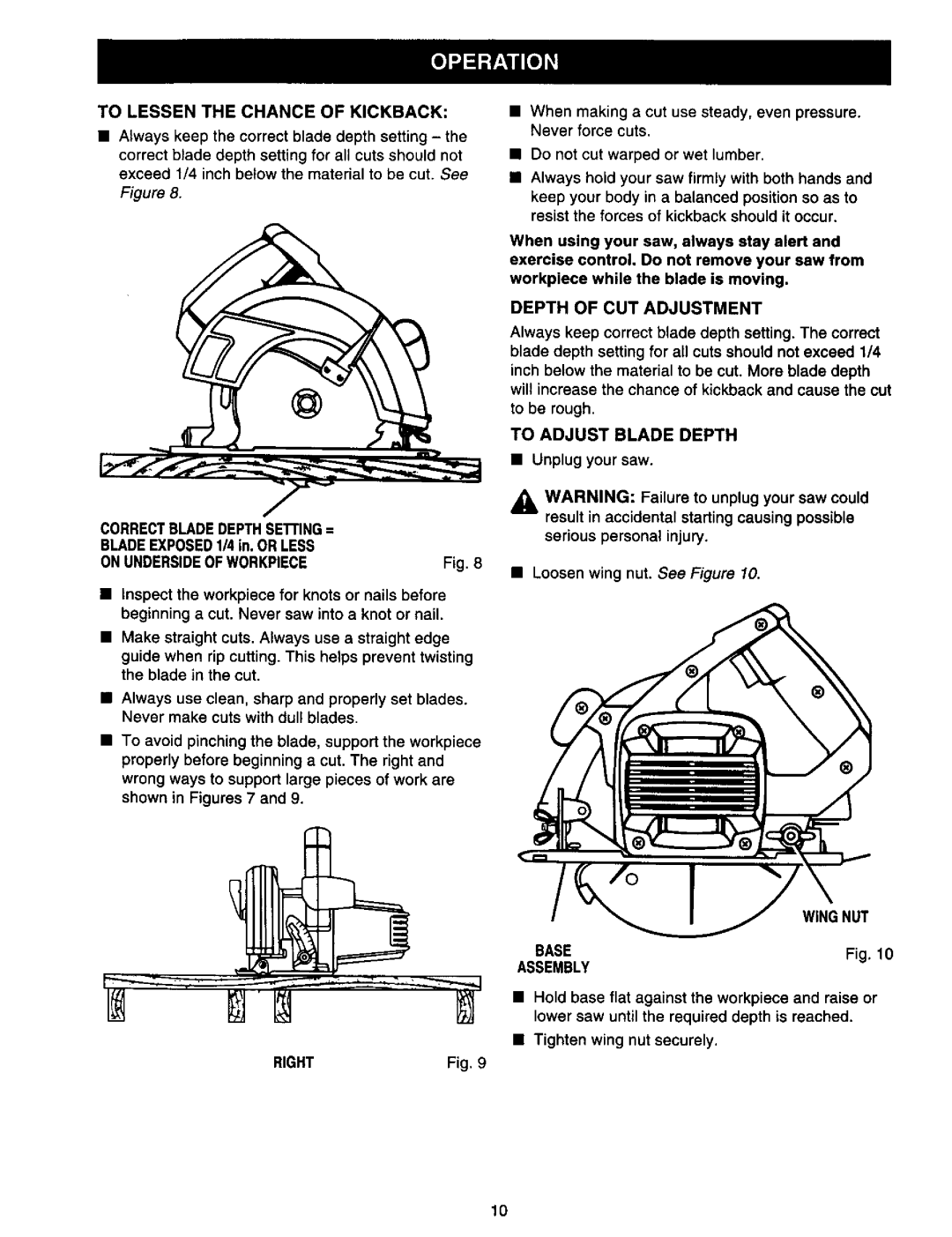
TO LESSENTHECHANCEOFKICKBACK:
•Always keep the correct blade depth setting - the correct blade depth setting for all cuts should not exceed 1/4 inch below the material to be cut. See Figure 8.
CORRECTBLADEDEPTHSE'mNG= |
|
BLADEEXPOSED114in. OR LESS |
|
ON UNDERSIDEOF WORKPIECE | Fig. 8 |
•Inspect the workpiece for knots or nails before beginning a cut. Never saw into a knot or nail.
•Make straight cuts. Always use a straight edge
guide when rip cutting. This helps prevent twisting the blade in the cut.
•Always use clean, sharp and properly set blades. Never make cuts with dull blades.
•To avoid pinching the blade, support the workpiece properly before beginning a cut. The right and wrong ways to support large pieces of work are shown in Figures 7 and 9.
RIGHT | Fig. 9 |
•When making a cut use steady, even pressure. Never force cuts.
•Do not cut warped or wet lumber.
•Always hold your saw firmly with both hands and keep your body in a balanced position so as to resist the forces of kickback should it occur.
When using your saw, always stay alert and exercise control. Do not remove your saw from workpiece while the blade is moving.
DEPTH OF CUT ADJUSTMENT
Always keep correct blade depth setting. The correct blade depth setting for all cuts should not exceed 1/4 inch below the material to be cut. More blade depth will increase the chance of kickback and cause the cut to be rough.
TO ADJUST BLADE DEPTH
•Unplug your saw.
_ WARNING: Failure to unplug your saw could result in accidental starting causing possible
serious personal injury.
•Loosen wing nut. See Figure 10.
| WINGNUT |
BASE | Fig. 10 |
ASSEMBLY |
|
•Hold base flat against the workpiece and raise or lower saw until the required depth is reached.
•Tighten wing nut securely.
10
